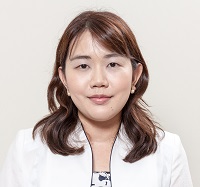Bio
Shoko Kiyohara teaches American politics and information and communication policy at the School of Information and Communication, Meiji University. She was a Fulbright Dissertation Fellow at Georgetown University in 2005. Her dissertation was published in 2008 with funds from the Ohira Masayoshi Foundation. She received the Telecom Social Science Award for her book titled The Telecommunications Policy Process in Contemporary America: A Reform of the Universal Service Fund from the Telecommunications Advancement Foundation in March 2009.
During her sabbatical, she returned to Washington, DC to be a visiting researcher at Georgetown University and a visiting scholar at the APSA Centennial Center for Political Science and Public Affairs for the 2014 academic year. Her Abe Fellowship was held from September 2015 to August 2016.

